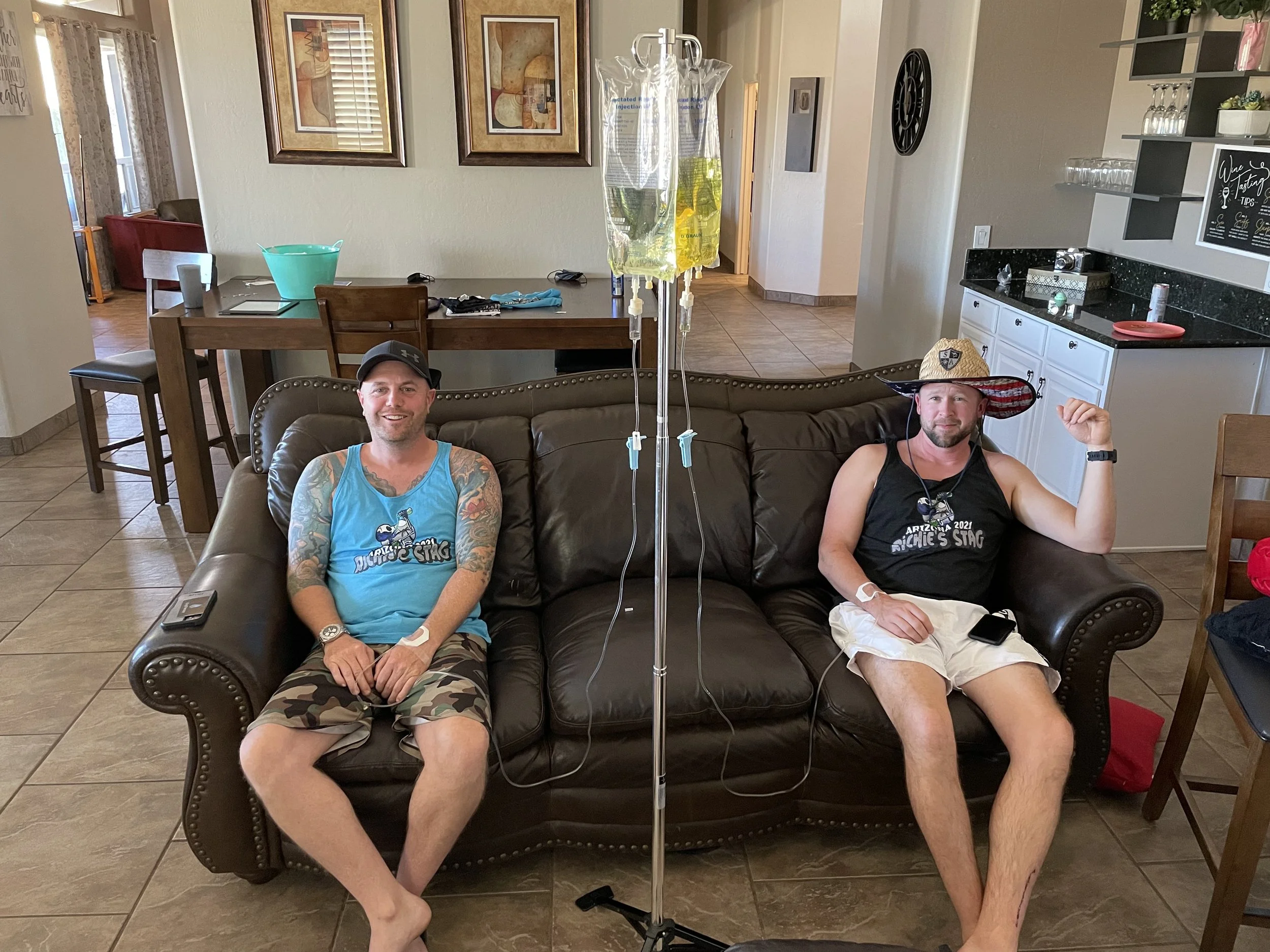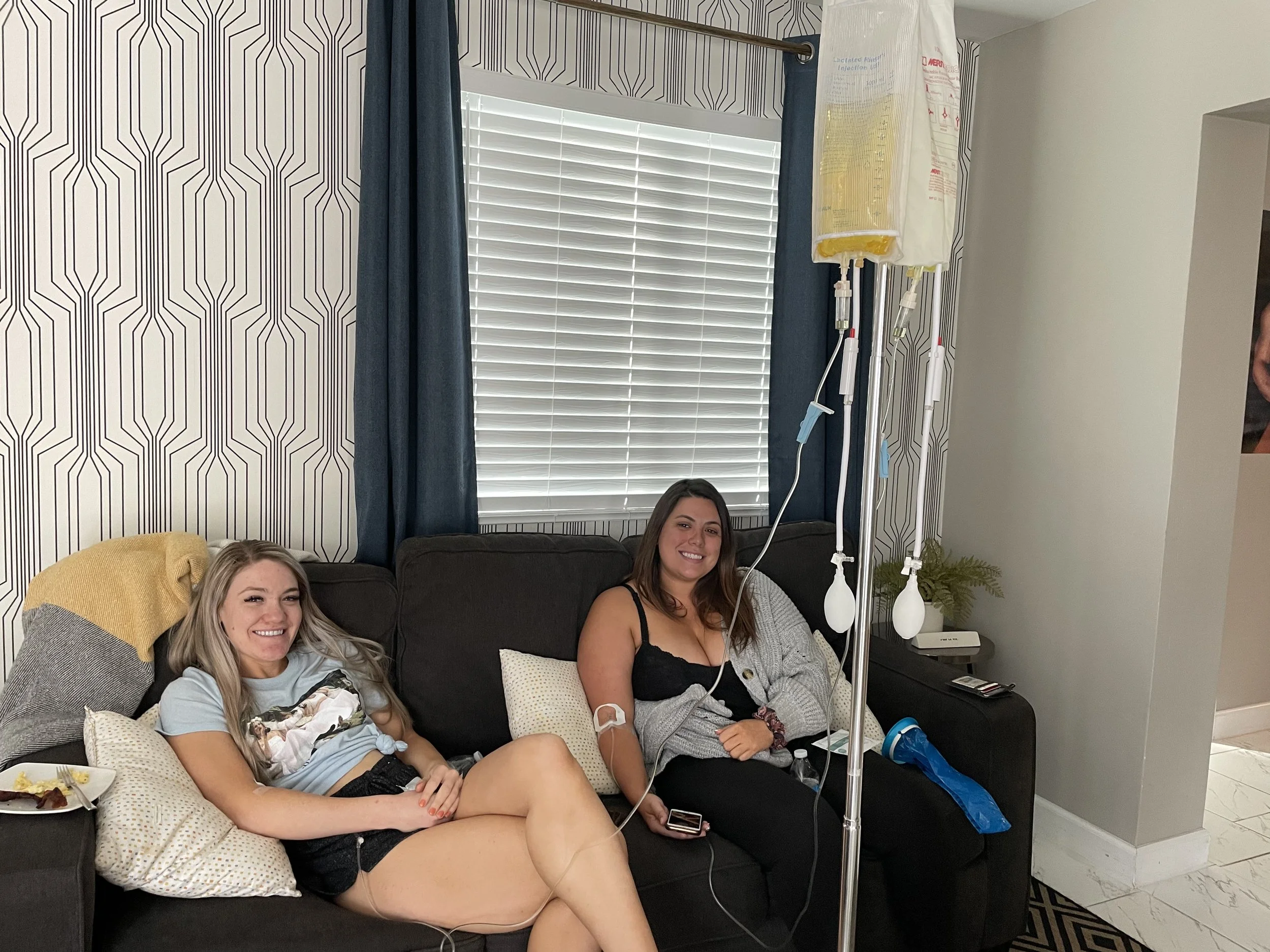WHat To Expect
About your IV Infusion
How to Prepare for your IV Therapy Infusion:
Prior to the arrival of a team member, we recommend consuming plenty of water and having a bite to eat for best results.
What to expect during your IV Therapy Infusion:
The RN/Medic will explain each step of the process. The RN/Medic will first review client paperwork and discuss your medical history.
During treatment, a Registered Nurse or Paramedic will insert an IV line into an accessible vein. The IV line is attached to a bag of saline, which is hung above the patient’s head. Essential fluids and minerals inside of the IV bag will be carried to the veins over a period of time. The duration of treatment typically lasts between 30 – 45 mins
Occasionally, our clients might report cooling of their arm or a warm sensation as certain nutrients enter their bloodstream. These are normal occurrences.
If you experience pain during the IV, please notify the RN/Medic right away. Some discomfort is normal but the RN/Medic will assess the IV to make sure it is flowing properly.
How to care for yourself after your IV Vitamin Therapy Infusion:
You can resume normal activity
Apply pressure to site for 2 minutes after IV has been removed
Keep gauze in place for 4 hours
Warm packs and elevating your arm can be used for any bruising at the site
Any swelling should be significantly reduced in 24hrs
Post IV infusion symptoms are uncommon. Dehydration is the cause of most symptoms and concerns.
We encourage you to drink at least 1-2 16oz bottles of water after your IV infusion.
If enough water is not consumed, you may experience any of the following symptoms: headaches, nausea, joint pain, blurred vision, cramping (GI and/or muscular), mental confusion or disorientation.
Most patients experience significant overall improvements:
Better energy
Better mental clarity
Improved sleep
Improvement of their complaints
Overall feelings of well being
Patients commonly report one of the two feelings after IV Vitamin Therapy Infusion:
Patients generally feel better right away. Due to a busy lifestyle, many people are chronically dehydrated and deficient in vitamins and minerals causing them not to feel well. Once the patient is hydrated and the nutrients are replaced, their symptoms improve quickly.
Patients feel tired or unwell. These patients are generally in the process of detoxifying. When toxins are pulled out of tissues, they re-enter the blood stream. They remain poisons, but they are now on their way OUT instead of on their way IN. Even when patients do not feel well at this stage, the process is one of healing and cleansing. After this period, an overall improvement in one’s sense of well-being is generally reported.




